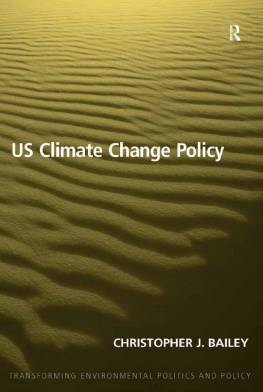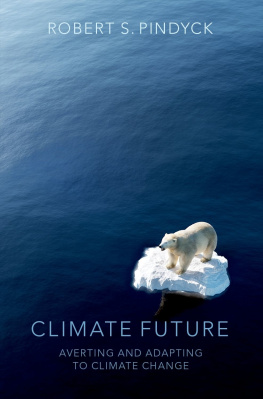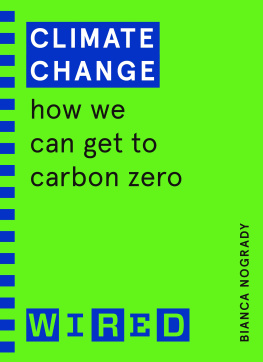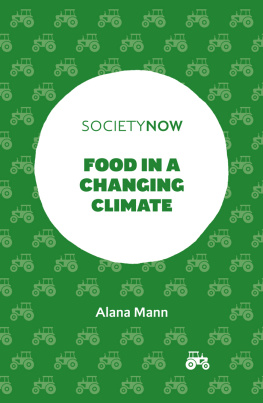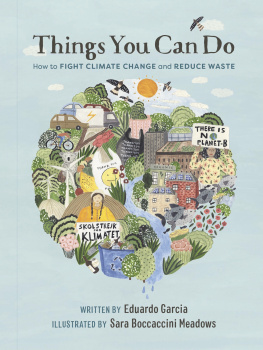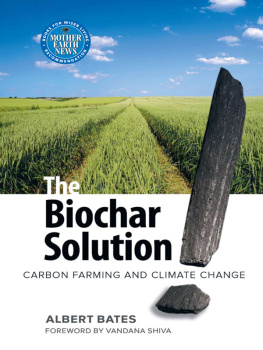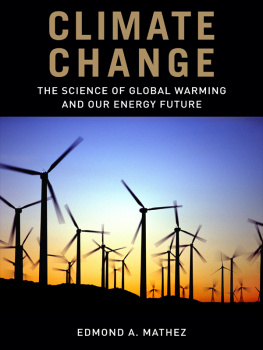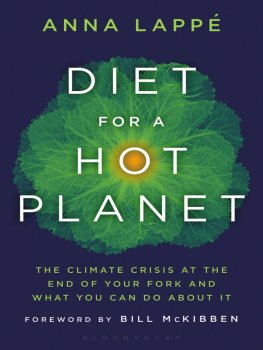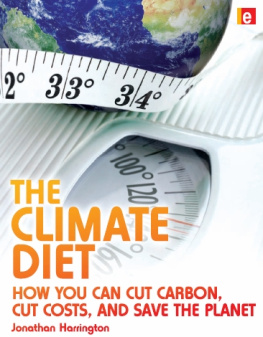No kitchen should be without this engaging, carefully researched and practical guide to the carbon in our food.
Prof Mike Berners-Lee
Author of How Bad are Bananas and There is no planet B
Did you know a latte is ten times worse for the climate than a cup of black coffee? Or that each calorie of beef requires 20 calories of feed? Or that an out-of-season tomato can have 80 times the climate impact of an in-season tomato? Food and Climate Change Without the Hot Air provides a levelheaded, clear, and detailed picture of food emissions - a basic literacy we should all have in a time of accelerating climate consequence.
Peter Kalmus
NASA climate scientist and author of Being the Change: Live Well and Spark a Climate Revolution
This is a wonderful, fact-filled but readable book, full of clear explanations of the emissions associated with everything we eat, identifying what is important and what is negligible. I shall never look at spaghetti bolognese in the same way again.
Prof Sir David Spiegelhalter
Winton Professor of the Public Understanding of Risk at Faculty of Mathematics, University of Cambridge
Superb work. In Food and Climate Change Sarah Bridle takes us on an eye-opening journey through the climate costs of our food and drink. From our buttered breakfast toast to teatime tikka masala this book lays bare the carbon footprints of the food choices we make every day. Succinct and well-researched, this book is a great resource for anyone who wants to know how to help tackle climate change with every meal.
Prof Dave Reay
Author of Climate-Smart Food
I have already used information and ideas from this book in helping a landowner develop a strategy for climate friendly food production, shaping a research project and deciding on a tasty dinner at my favourite Indian restaurant (approximately 1000g CO2 equivalent and lower than the 3000g of a typical meal). Food and Climate Change without the hot air will be an essential reference just as David Mackays companion volume guided many of us through the maze of information about energy.
David Baulcombe
Royal Society Research Professor, University of Cambridge
Im rather glad, perhaps, that I hadnt read Sarah Bridles book before dinner. It allows readers no refuge from the inescapable climatic consequences of their dietary desires because it quantifies them in such orderly and precise terms. Its a marvel of synthesised research, clear explanation, and friendly wit.
Prof Philip Tabor
Former Director of the Bartlett School of Architecture, University College London
Sarah Bridle leads the reader through the climate impacts of our food, meal by meal. She uses the most up-to-date science and brings it to life in a personal, engaging and non-judgemental way.
Prof Pete Smith
Director of the Scottish Climate Change Centre of Expertise
Sarah Bridle has turned a page in our understanding of the impacts of our everyday eating habits with this ground-breaking, well-researched and accessible book. It will enable conscious decisions by individuals and industry concerned over the sustainability of our planet.
Prof David J Drewry
Non-Executive Director (Natural Science), UK Commission for UNESCO
Sarah Bridle provides information about the carbon footprint of foods many of us eat in an attractive, readable, well-researched and nicely-structured volume. I will be dipping into it regularly.
Prof Joanna Haigh
Former co-director of the Grantham Institute on Climate Change and the Environment, Imperial College London
wonderful book - a fantastic contribution - just what is needed to start the very serious process of getting useful information to people so that they can make informed decisions about the emission associated with what they eat.
Prof Sir Ian Boyd
Former Government Chief Scientific Adviser, DEFRA and Professor of Biology, University of St Andrews
For people who want to eat sustainably Professor Bridle has the answers. The book takes this complicated topic and turns it into something readable, educational and fun.
James Hand
Co-Founder of Giki (a mobile app that helps you cut your environmental impact)
Bridle has given important information we should all know and understand about emissions and the food we waste, and included tips for how to reduce waste, which adds action to information.
Dr Liz Goodwin
World Resources Institute
This is a terrific book. It unpicks the connections between the food we eat and climate change in an engaging and straightforward manner with numerous notes to help you delve deeper. You will be amazed. Your preconceptions are often wrong.
Martyn Poliakoff
Research Professor in Chemistry, University of Nottingham
Sarah Bridle cuts through much of the confusion and complexity around the climate-change consequences of what we eat to provide a clear guide of how changes to diets can contribute to a more sustainable world.
Prof Sir Charles Godfray
Director of the Oxford Martin School, University of Oxford
Ever wondered whether beef produces over 100 times more carbon emissions than cabbage per gram? Then wonder no more as this book has the answer. An accessible approach to foot printing your meal to help you balance not just your diet but also your planetary impact!
Prof Aled Jones
Director of the Global Sustainability Institute, Anglia Ruskin University
How does the food we eat create climate change? This excellent, accessible handbook tells us; and guides us in personally tackling climate change through changing what we eat.
Prof Tim Benton
Director, Energy, Environment and Resources Programme, Chatham House
Sarah Bridle presents a crystal clear and very readable summary of how our meals through the day affect climate change. This should be an essential addition to all our cookery book shelves!
Dr John Ingram
Food Systems Programme Leader, Environmental Change Institute, University of Oxford
This book provides the information for students to make an educated decision about how to help turn around the climate crisis through food, free of political and personal baggage.
Jennie Hargreaves aka Mrs Physics
Scottish Institute of Physics, Physics Teacher of the year Award (2016)
Ive been looking for ages for a guide as useful as this. This book provides a way to think about carbon emissions from food that is both clear and simple as well as providing the details and accuracy needed. The key points at the end of each chapter are really useful and will help many people to know how to make better decisions - without having to be absolutist.
Dr Julian Huppert
Former Member of Parliament for Cambridge and Director of the Intellectual Forum, Jesus College, University of Cambridge
Real food for thought! Sarah Bridle follows up the David MacKays pioneering approach to sustainability in an absorbing and thought-provoking analysis of cookings contribution to greenhouse gases. Very easy to follow and make your own judgements.
Prof Malcolm Longair
Emeritus Jacksonian Professor of Natural Philosophy, University of Cambridge
Its all about quality ingredients beautifully prepared. And here youll be nourished by tasty hard facts and zesty stats, mellowed in a sauce of wit and clarity. A climate friendly kitchen essential.
Tom Heap
Rural Affairs Correspondent of BBC News, presenter of BBC Radio 4s Costing the Earth and presenter on the BBCs Countryfile and Panorama TV programmes
Have you ever wondered how you personally can help save the planet? Here are some answers!
Christian Holler
Professor at the Munich University of Applied Sciences and author of
Next page

